Pigou Welfare Economics:
Arthur Cecil Pigou, the last of the neo-classical economists, systematized what has now come to be known as the “Old Welfare Economics”. Before him, economists used the word “satisfaction”, it was Pigou who popularized the use of the term “welfare”. He even named his magnum opus “The Economics of Welfare“.
One important assumption of the neo-classical theory of welfare economics is that each individual attempts to maximize his own satisfaction. Marshall’s theory of consumer equilibrium (or, his law of maximum satisfaction) is built on this very assumption. Pigou also accepts this assumption, though in a modified form. According to Marshall, the utility can be measured cardinally (in units of satisfaction) and can also be compared interpersonally. Pigou, however, does not accept the thesis of the cardinal measurement of utility. As against Marshall, he accepts the ordinal conception of utility, but at the same time, he holds the view that utilities are comparable both interpersonally and intrapersonally. The basis for such comparisons according to Pigou, is the postulate of man’s equal capacity for satisfaction. This postulate can better be explained in Pigou’s own words: “If we take random groups of people of the same race and brought up in the same country, we find that in many features that are comparable by objective tests, they are on the average pretty alike… On this basis, we are entitled, I submit, to infer by analogy that they are probably pretty much alike in other respects also. In all practical affairs, we act on that supposition. We cannot prove that it is true. But we need not do so. Nobody can prove that anybody besides himself exists, but nevertheless, everybody is quite sure of it. We do not, in short, and there is no reason why we should, start from a tabula rasa, binding ourselves to hold every opinion which the natural man entertains to be guilty until it is proved innocent. The Burden is the other way. To deny this is to wreck, not merely Welfare Economics, but the whole apparatus of practical thought. On the basis of analogy, observation, and intercourse, interpersonal comparisons can, as I think, properly be made; and moreover, unless we have a special reason to believe the contrary, a given amount of stuff may be presumed to yield a similar amount of satisfaction, not indeed as between any one man and any other, but as representative members of groups of individuals, such as the citizens of Birmingham and the citizens of Leeds. This is all that we need to allow this branch of Welfare Economics to function.”
Pigou, thus, holds that by and large different people derive the same satisfaction out of the same real income, and does not concede that “people now rich are different in kind from the people now poor having in their fundamental nature greater capacities for enjoyment.” This is, in short, Pigou’s postulate of man’s equal capacity for satisfaction. Marshall’s view is also similar to that of Pigou when he observes, “It would naturally be assumed that a shilling’s worth of gratification to one Englishman might be taken as equivalent with a shilling’s worth to another… until cause to the contrary was shown.”
Assuming that real income consists of a single sort of commodity which is subject to the law of diminishing marginal utility, Pigou, on the basis of his postulate of man’s equal capacity for satisfaction, reached the conclusion that persons having more real income will enjoy greater satisfaction than those having less of it. As such, any transfer of real income from the rich to the poor will necessarily increase aggregate satisfaction or social welfare.
We have assumed above that real income consists of a single sort of commodity. This may not be a realistic assumption because the world in which we live is a multi-commodity world. The real income, in actual practice, consists of a heterogeneous collection of goods. In such a world, it is not easy to say in the physical sense that one real income is larger than another or that a person having one real income is better off than another. Nor is the law of diminishing marginal utility applicable to real income consisting of heterogeneous goods. Pigou does not overlook these difficulties. Still, he maintains that the law of diminishing marginal utility can be applied to money income, which is homogeneous. Thus, on the basis of the same postulate of man’s equal capacity for satisfaction, he concludes that even in a multi-commodity world, the transfer of money income from the relatively rich to the relatively poor will increase social welfare. If this conclusion is accepted, it follows that a perfectly equal distribution of money income is an indispensable condition, which must be fulfilled to achieve maximum social welfare. Equal distribution of money income will equalize its marginal utility to all the individuals and thus ensure maximum social welfare for the community. This is, in essence, Pigou’s theory of welfare economics.
An objection is sometimes raised against this welfare theory enunciated by Pigou. It is pointed out that if the money income is equally distributed among the members of society in order to maximize social welfare, it will have an adverse effect on capital formation and productive incentives, ultimately reducing the total national income of the country. To meet this objection, Pigou suggests that the policy should be adopted in such a manner that it does not harm “productive effort, enterprise and the development of capital equipment.”
Another serious objection against Pigou’s welfare theory has been raised by Lionel Robbins who points out that it is based on the assumption of man’s equal capacity for satisfaction which, according to him, is scientifically untenable. If the scientific character of this assumption is open to doubt, it cannot provide a firm basis for interpersonal comparisons of utility. The very basis of Pigou’s welfare theory has thus been attacked by Robbins. In the words of Robbins, “The postulate of equal capacity for satisfaction rests upon ethical principle rather than upon scientific demonstration; it is not a judgment of fact in the scientific sense but rather a judgment of value, perhaps, even in the last analysis, an act of will.” As such Pigovian welfare theory is, according to Robbins, a purely normative study devoid of a positive, scientific character. It could not provide a positive guide to welfare policy of recommendations.
On account of the severe strictures passed by Robbins, the Pigovian theory of welfare economics has lost its scientific status (whatever it had in the past) and ceased to exist as an accepted guide to welfare policy. Attempts have been made to reconstruct welfare theory on a scientific basis by adopting two different lines of approach. Tow new types of welfare theories have been sought to be developed-
(1) The Compensation Principle (New Welfare Economics).
(2) The Social Welfare Function.



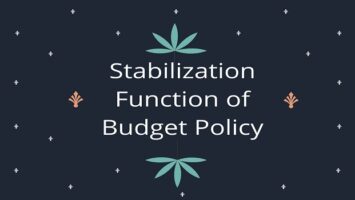
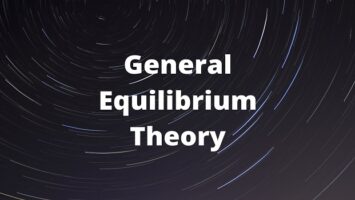
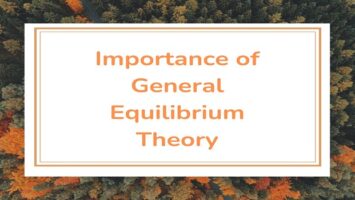
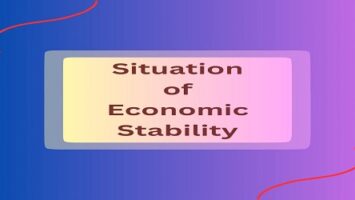
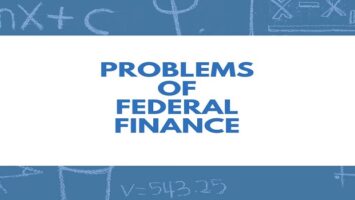

Comments (No)